Afghanistan’s acting Foreign Minister Amir Khan Muttaqi arrives in New Delhi for his first reported visit, signaling a cautious thaw in India–Taliban engagement amid regional security and humanitarian considerations.
New Delhi | October 11, 2025
In a development closely watched by regional observers and diplomatic circles, Afghanistan’s Foreign Minister Amir Khan Muttaqi arrived in New Delhi this week — marking his first official visit to India since the Taliban’s return to power in 2021.
While the Ministry of External Affairs (MEA) has kept its messaging measured and procedural, the optics of the engagement are unmistakable: India and Afghanistan are testing limited diplomatic waters again, balancing pragmatic security concerns with humanitarian imperatives.
A Visit Shrouded in Caution but Rich in Symbolism
Sources in New Delhi confirmed that Muttaqi’s meetings focused on humanitarian cooperation, counterterrorism assurances, and monitoring of aid distribution channels.
“India has consistently supported the Afghan people through humanitarian aid, medical supplies, and educational engagement,” said an MEA spokesperson. “These interactions are part of ongoing regional consultations.”
This statement, brief and guarded, reflects India’s calibrated approach — engaging the Taliban government through technical channels without conferring formal diplomatic recognition.
Muttaqi’s visit marks the highest-level contact between India and the Taliban since the regime’s takeover in August 2021, when India evacuated its embassy in Kabul amid security concerns.
Backdrop: From Evacuation to Quiet Re-engagement
In the months following the Taliban’s return, India had suspended all official operations in Kabul, focusing instead on repatriation and relief. By mid-2022, however, New Delhi reopened a “technical mission” to coordinate humanitarian aid and oversee Indian-funded projects.
Since then, Indian officials and Taliban representatives have met discreetly in Doha, Moscow, and other neutral venues, primarily through Track-II and multilateral formats.
This visit represents a symbolic normalization of working-level ties — not recognition, but engagement born out of necessity.
“India’s strategy is one of cautious continuity,” said former diplomat T.C.A. Raghavan. “No sudden shift, but gradual contact to secure Indian interests and monitor developments.”
Key Agenda Points
According to diplomatic sources, the discussions between the Afghan delegation and Indian officials spanned five broad areas:
- Security Assurances: India’s foremost priority remains ensuring that Afghan territory is not used by terrorist outfits targeting Indian interests, particularly the Lashkar-e-Taiba (LeT) and Jaish-e-Mohammad (JeM).
- Humanitarian Support: India reiterated its commitment to aid delivery — food grains, medicines, vaccines, and winter relief — through UN agencies and local networks.
- Educational Cooperation: Talks reportedly touched upon resumption of scholarships for Afghan students and facilitation of medical visas for patients seeking treatment in India.
- Regional Connectivity: The two sides exchanged notes on trade routes via Chabahar Port and the International North-South Transport Corridor, though no announcement was made.
- Women’s Rights and Inclusion: India underscored the importance of inclusive governance, particularly education for girls and women’s participation in public life — a point emphasized by global partners as a condition for sustained engagement.
India’s Strategic Balancing Act
New Delhi’s approach to Afghanistan has always been shaped by three parallel imperatives — security, humanitarianism, and regional stability.
After investing over $3 billion in development projects during the previous Afghan Republic era, India faces the challenge of protecting both its physical assets and its goodwill among Afghan citizens.
“India’s humanitarian diplomacy fills a critical gap left by geopolitics,” said analyst Kabir Taneja of the Observer Research Foundation. “While others debate recognition, India builds quiet influence through empathy.”
Unlike Western capitals, which largely froze engagement after 2021, India has maintained non-political cooperation — sending wheat, life-saving drugs, and vaccines through UN channels while continuing to host Afghan students stranded during the transition.
Regional Context: Shifting Sands in South and Central Asia
Muttaqi’s visit also comes amid renewed regional realignments.
Pakistan’s own engagement with the Taliban has entered a turbulent phase over border security and refugee disputes, while China has deepened investment interest in Afghan mining and infrastructure.
Russia and Iran, meanwhile, maintain functional ties with Kabul for security coordination against the Islamic State–Khorasan (IS-K).
“Every regional player is hedging bets,” said Prof. Harsh Pant, a strategic affairs expert. “India’s approach is more cautious, but also more sustainable — focusing on people, not politics.”
By re-establishing contact without overt recognition, India ensures visibility in Afghanistan’s evolving power matrix while avoiding the diplomatic pitfalls of premature endorsement.
Humanitarian Dimension: People Before Politics
Since 2021, India has dispatched over 50,000 metric tonnes of wheat, 13 tonnes of medical aid, and half a million COVID-19 vaccines to Afghanistan through UN and Red Crescent intermediaries.
This aid continues to form the cornerstone of India’s Afghanistan policy — demonstrating commitment to the Afghan people regardless of regime change.
“Our assistance is apolitical and needs-driven,” reiterated an MEA official. “We work with international partners to ensure transparent delivery.”
For Kabul, India’s sustained aid presence is vital amid declining international attention and frozen assets. Afghan health institutions, especially in Kandahar and Herat, rely heavily on Indian-origin medicines.
Afghan Side: Seeking Legitimacy Through Engagement
Foreign Minister Amir Khan Muttaqi, representing the Taliban government, is likely to use such visits to project normalcy and seek legitimacy on the global stage.
“Engagement with India shows that Afghanistan is open for dialogue with all neighbors,” said a member of the visiting delegation quoted by Greater Kashmir.
Afghan officials reportedly highlighted their government’s “commitment to security cooperation” and “assistance to regional partners,” though Western nations continue to doubt the Taliban’s intent on counterterrorism and women’s rights.
Women’s Rights: The Unresolved Tension
India’s engagement remains conditional — especially on human rights and gender equity.
Since the Taliban reimposed bans on women’s secondary education and restricted female employment, global pressure has intensified. India, while avoiding direct criticism in official statements, has quietly aligned with UN calls for restoring basic freedoms.
“India’s diplomacy is soft-spoken but principled,” said Ambassador Meera Shankar. “The message is clear — no lasting partnership is possible without inclusion.”
During the meeting, Indian officials reportedly urged the Afghan side to allow girls’ schooling and female aid workers in international projects.
Security Cooperation: Eyes on the Border
India’s intelligence agencies continue to monitor Afghanistan closely for signs of cross-border extremist resurgence.
Recent reports of militant regrouping in Kunar and Nangarhar have raised concerns of infiltration attempts across South Asia.
“Counterterrorism is India’s red line,” said former RAW official Vikram Sood. “Engagement is tactical, not sentimental. It ensures we’re informed, not isolated.”
Muttaqi’s assurances, according to sources, included commitments to prevent the use of Afghan soil by any group targeting India — a pledge India has heard before but remains cautious about verifying.
The Economic Angle: Connectivity and Trade
India and Afghanistan once enjoyed robust trade ties through Iran’s Chabahar Port, enabling transit bypassing Pakistan.
Post-2021, trade has declined but not disappeared — Indian exports of pharmaceuticals, tea, and textiles continue through informal routes.
“If stability improves, Chabahar could again become the artery for regional commerce,” said Dr. Nandan Unnikrishnan of ORF. “But trust and transit go hand in hand.”
Afghanistan is also exploring barter arrangements and border bazaars through Central Asian networks, where India seeks a foothold as part of its “extended neighborhood policy.”
Diplomatic Dynamics: Low-Key but High-Value
Unlike past high-profile visits, Muttaqi’s arrival was low-key, with no press conference or joint statement.
Meetings were confined to the MEA premises, followed by courtesy calls with senior officials overseeing regional affairs.
This deliberate understatement reflects India’s “engage but not endorse” principle — a way to maintain dialogue without altering formal recognition status.
“It’s diplomacy by quiet presence,” observed C. Raja Mohan, foreign policy scholar. “India doesn’t need headlines; it needs footholds.”
Global Response and Reactions
International reactions to the visit have been muted but analytical.
Western diplomats interpret India’s move as part of a broader normalization trend — engagement without endorsement.
The United Nations welcomed continued humanitarian cooperation but reiterated that “recognition requires progress on inclusivity.”
Pakistan-based commentators viewed the visit through a competitive lens, suggesting that New Delhi’s outreach reflects a “strategic comeback” in Afghanistan’s diplomacy.
Voices from Afghanistan: Hope and Hesitation
Afghan civil society figures welcomed the visit as a potential bridge for people-to-people ties.
“India has always stood with Afghans, not regimes,” said Lailuma Noori, a women’s rights advocate in Kabul. “We hope India keeps supporting our education programs quietly, even if others have left.”
However, skepticism remains among exiled Afghans about Taliban credibility.
“Engagement is fine, but the world must not forget Afghan women,” warned Farzana Kochai, a former MP now based in Germany.
The Broader Message: Pragmatism Over Posturing
Analysts agree that India’s evolving policy reflects pragmatism over idealism.
Rather than cutting off contact, New Delhi prefers managed engagement — maintaining visibility while working with international partners to shape outcomes.
“India’s foreign policy has matured into one of layered diplomacy,” said Lt. Gen. Rakesh Sharma (Retd.). “We balance humanitarian commitments with hard security interests.”
The visit underlines India’s belief that “regional stability begins with regional dialogue.”
The Shadow of History
India’s relationship with Afghanistan spans centuries of trade, culture, and mutual empathy.
From the construction of the Salma Dam and Parliament building to support for Afghan students and hospitals, India’s legacy remains deeply rooted.
Post-2021, those projects became both symbols of goodwill and reminders of fragility. Yet, India’s reputation among ordinary Afghans endures — as the partner who builds, not bombards.
“Even in our hardest times, India sent food, not soldiers,” said Dr. Agha Noor, a Kabul-based physician.
The Road Ahead: Conditional Continuity
Diplomatic insiders expect future engagements to remain functional, discreet, and conditional.
India will likely expand humanitarian outreach, facilitate educational visas, and monitor on-ground realities through its Kabul mission.
Recognition, however, remains off the table until measurable progress is observed on inclusivity, governance, and security assurances.
“There is no normalization without normalization of behavior,” a senior MEA official noted.
India’s broader strategy continues to align with global consensus — engage to stabilize, but verify before trusting.
Expert View: Why This Visit Matters
| Dimension | India’s Objective | Constraints |
| Security | Prevent terror spillover | Verification of Taliban control |
| Humanitarian | Aid delivery continuity | Logistic access via UN |
| Regional Stability | Counter China-Pak influence | Lack of on-ground intel |
| Economic | Protect prior investments | Frozen financial channels |
| Diplomatic Optics | Show active role in neighborhood | Maintain recognition balance |
“This is diplomacy as damage control,” said Maj. Gen. Ashok Mehta (Retd.). “India can’t ignore Afghanistan, but it won’t embrace it either — at least not yet.”
Conclusion: Quiet Steps, Watchful Eyes
Amir Khan Muttaqi’s New Delhi visit may not rewrite policy overnight, but it signals a pragmatic continuity in India’s Afghanistan approach — a mix of caution, compassion, and calculation.
For India, engagement ensures influence; for Afghanistan, it offers legitimacy.
Between them lies a fragile bridge — built not on recognition, but on recognition of realities.
As one senior diplomat summed up:
“In diplomacy, silence often speaks louder than statements. This visit was one such conversation — quiet, but consequential.”
#India #Afghanistan #Diplomacy #MEA #RegionalSecurity #ForeignPolicy #HumanitarianAid #InternationalRelations #SarhindTimes











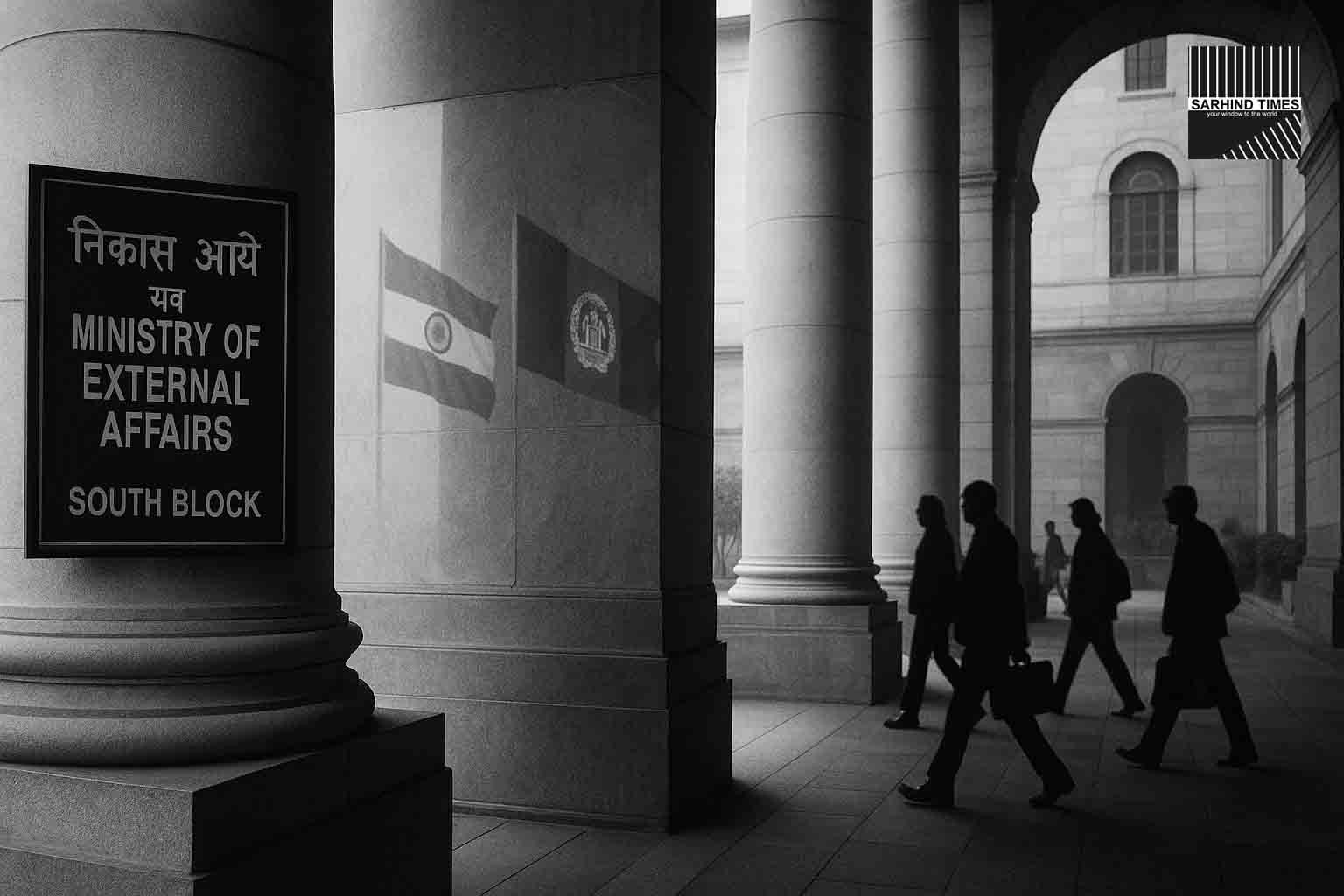
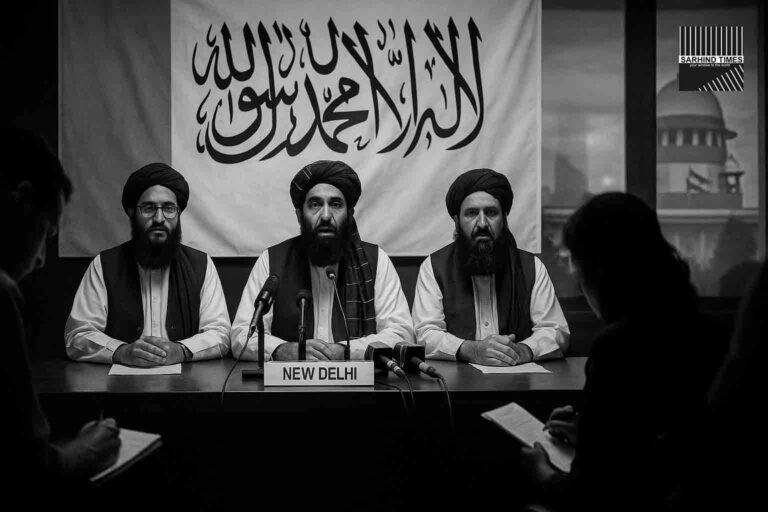


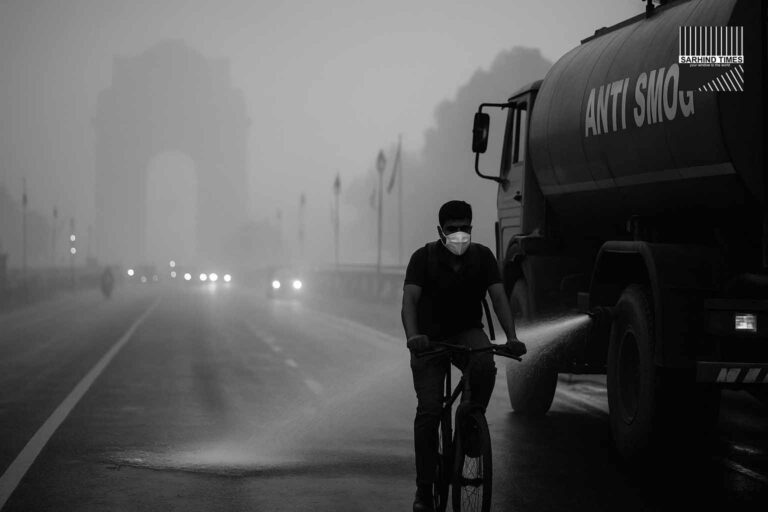
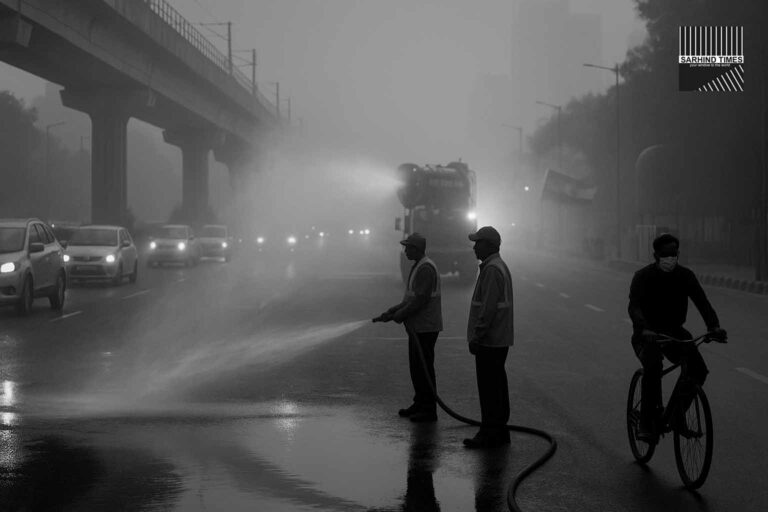




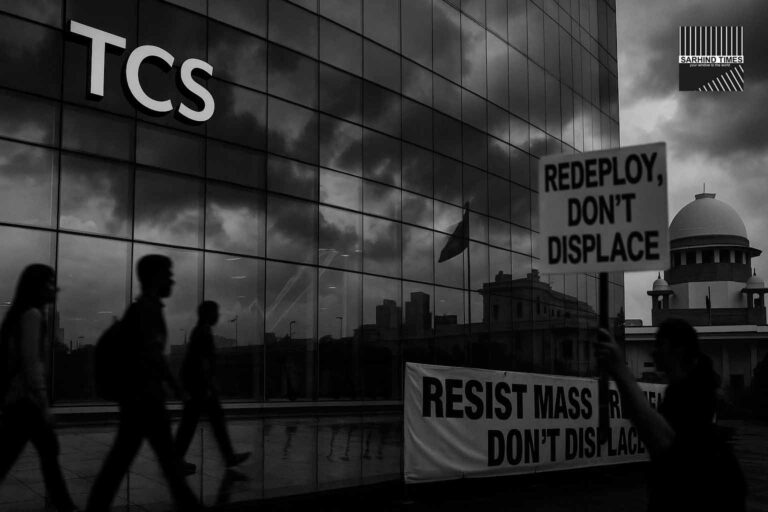

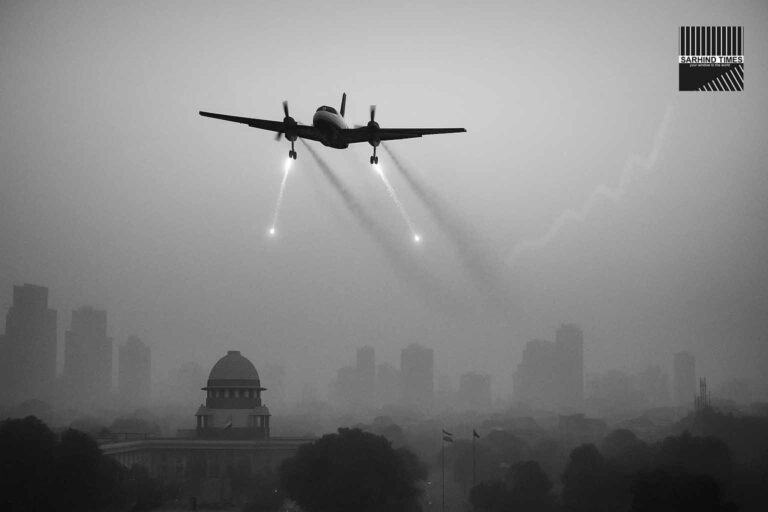
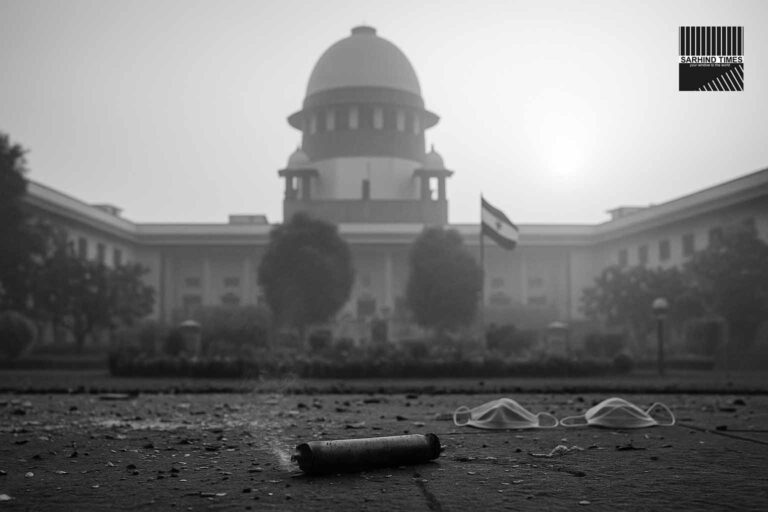
+ There are no comments
Add yours